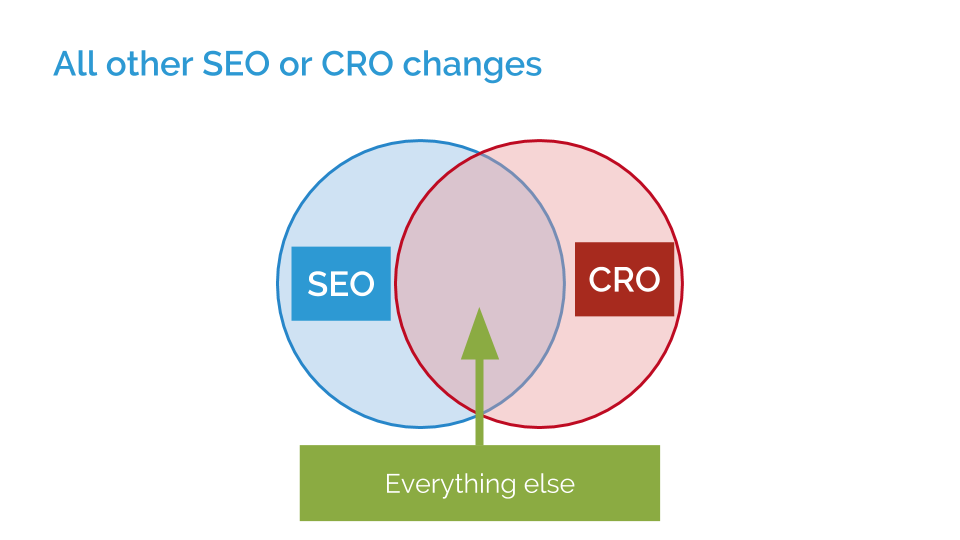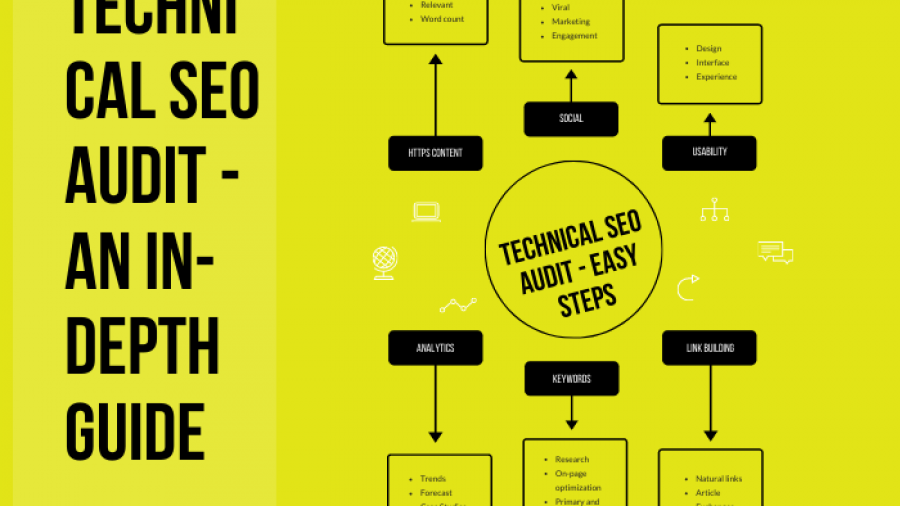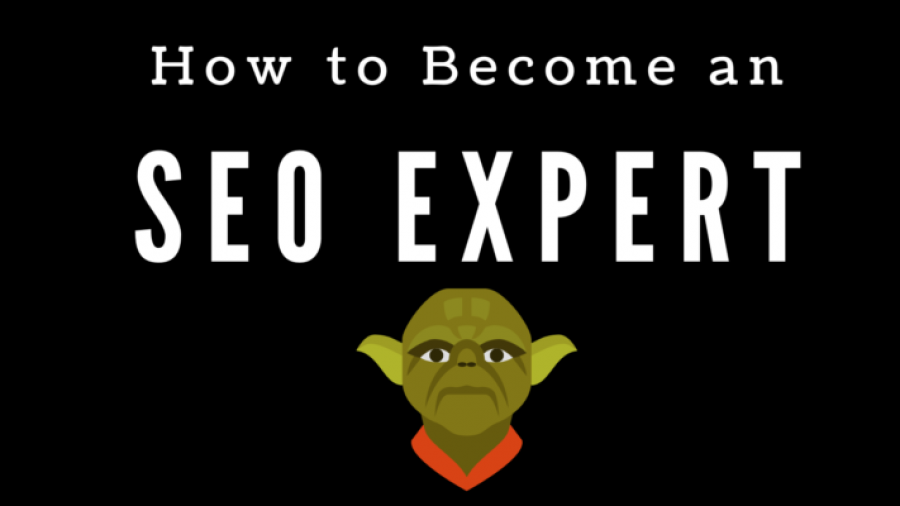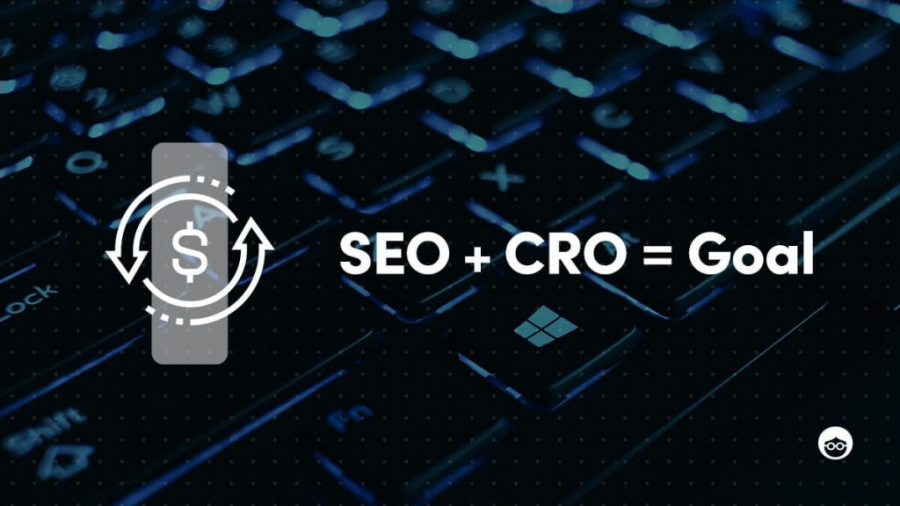Technical SEO Audit – This is an in-depth article on how to perform technical SEO audit. Learn how to do it by clicking here.
How to Become an SEO Expert
Want to become an SEO expert? Great! In this article, I will discuss 21 things you need to know to become an SEO expert today.
So you want to start an SEO professional.
I understand why.
There are many reasons why you should love SEO.
SEO is fun.
SEO is a quick strategy, which requires a lot of time.
But that means that SEO attracts those who see it as easy to manage money or work from home.
They read some blogs here and there, learn vocabulary and voila! He changed his name on LinkedIn to “SEO Expert.”
After a few days.
Or worse, a matter of hours.
🤦
It’s like reading a few medical books and calling yourself a doctor.
This is not how it works.
Professional SEO, like any field, takes time, dedication, and experience.
You cannot claim to be an SEO expert.
Not another young man.
Our professionals have been doing SEO for ten years now.
Ready to follow in their footsteps?
Here are 21 things you need to know to be an SEO expert.
1. Understand the basics of SEO to become an SEO Expert
Become an expert, start from scratch. You need to understand how people communicate with searchers and what you can do to effectively promote the content.
Learn the basics in three areas:
• The types of content that readers want, expect or need. Everything about user ideas.
• Internal behavior such as the functioning of the search engine.
• Tools and procedures needed to build a website.
Without this context, you can define “what”, but not “why”.
As someone who has been in this industry for 15 years, know why this surprised you.
When you go to advanced SEO sites know why they make it more effective.
In search engine optimization, an ebook covering SEO first has been developed.
2. Design your website
Once you understand the basics of SEO, it’s time to use them.
Most pros will tell you that they learned the most from breaches and damage to your website.
Ryan Jones from Razorfish had an interview with him on Search Engine Display:
“Don’t start SEO for big signs; start SEO for yourself. Do it. Whether it’s a blog, affiliate page, or app. You start doing it for yourself and that’s it. is how you improve your skills. “
Learn HTML. Learn all the signs. Ule.
Enter the content and see how it shows up in the SERPs.
Select the subject you entered. This makes it easier to create content.
You want to spend more time creating and improving your content than writing it.
3. Acquire WordPress knowledge to become an SEO expert
One third of the websites are WordPress based.
So if you want to be a good SEO expert, you need to know it well.
Not only is it ubiquitous, but it’s also the best CMS for SEO.
WordPress is perfect for projects that (eg metadata) and directly (eg UX) affect SEO performance.
Start your WordPress blog with a large list of Kinsta tools.
4. Set up Google Analytics and the Google Search Console
SEO professionals use a number of tools to maximize content and analyze its impact.
Google Analytics and Google Console are important to any credentialed SEO company.
Google’s recommendation data has grown since day one.
You can use Google’s search engine optimization to promote your website.
SEO experience requires both owners.
5. Read about SEO daily to become an SEO expert
Do you remember what I promised
You should decide to read about SEO every day.
The major search engines change every day and you never know how this will affect your rankings.
Your colleagues, customers, and executives – they hope you get an answer.
Based on daily SEO content that keeps you fresh.
Not sure where to start? Check out this list of 25 trusted resources to get started.
6. Understand how search tools work
You can easily sense that most of your fate is in the hands of the search engines.
And he did.
Therefore, you need to be familiar with crawlers.
These robots make decisions about the quality and relevance of the content.
Many key factors guide these decisions.
Understanding the purpose, relevance, quality of content, links, and usage can help you understand why algorithms work the same way they do.
Search engines are black boxes – they have no sauce behind their products.
However, you can use these known factors to improve your website and gain a foothold.
If you want to know the real richness of Google Docs, visit SEO Sla Slak via the blog.
Or read the e-book: How Our Search Engine Is Available.
7. Read the Google Quality Rater Guides
For a closer look behind the scenes, check out the Google Quality Raterial Guides.
Google hires employees to evaluate websites. This guide covers the factors that should be found.
It is not a short read.
You may be familiar with a simple version of your content called E-A-T:
• Advice
• Authority
• Trust
The easy version is useful if you are a beginner or even an intermediate level, but to become an expert you need to read the whole thing.
The raters s aren’t SEO professionals – they’re ordinary people.
Like search engine robots, these hackers affect your website’s performance.
8. Check the SERPs
This is where the whole action took place.
See the search engine results pages (SERP).
• How are they organized?
• What content is displayed?
• Who is feeling well?
• Notice how the results change when there are different queries.
• How does the search for “Alfredo Sauce” differ from “Alfredo Sauce”?
• You can see the details shown for instructions as I asked questions in the search box.
Here you can see the information bar on the right
Google decides these questions and puts content into a process that users believe users want the best.
So take a look at the SERPs.
Plenty.
9. Learn SEO techniques and become an SEO expert
SEO technology does everything possible to make it easy for you to purchase and index your website.
SEO technology encompasses mobile usage, website speed, personalized data, Javascript and any process that affects how a website works.
These articles are distributed on a website by the SERPs.
It may contain surprising content, but it may slow down or corrupt sites with too many errors.
With so much content to compete with, a website with a strong foundation in SEO technology can make or break your ideas.
Learn more from our SEO guide. I also write articles on SEO from time to time. You can check out some of my existing articles on SEO here
10. Learn about content strategy, creating, optimizing and advertising
While improved search engines help search engines crawl and evaluate your website more efficiently, understanding content will help you improve user experience, time on the site, links, and more.
Gone are the days when content was created with the key-first key.
Since the Hummingbird and RankBrain updates came out, content creation needs to be done in a user-friendly manner first.
Just because you publish content does not mean that users will find it.
Requirements need to be changed to increase the context of the item so that search engines understand how to classify it.
This content must also be supported by advertising strategies.
SEO alone is not enough – other advertising channels (e.g. social media, email) can contribute to the success / failure of your content.
11. Use network building strategies that actually work
Link building is one of the first things you learn while studying SEO.
And it is also one of the topics that has some very difficult conclusions.
To take advantage of link building, you need quality connections, not just quantities.
Finding the place carries a good report and building relationships.
Relationships are important to building relationships. I was asked to contribute to this post on PointVisible and this resulted in a good link to SEJ.
If you are a beginner, get started with our Getting Started Website Books.
If you go a little further, check out our in-depth in-depth guide.
12. Do not develop mathematical behavior
The focus of the research series is when you focus so much on following the constitution until you become flexible and you never know when this project will stop working.
Search engines are constantly changing.
You have to adjust, and the thought process means walking into the blind through a series of actions.
Over time, the contents of this Don List will be up-to-date or will not be considered new.
Ultimately, the calculation process will affect your results.
Instead, be open-minded and result-oriented.
If your position falls apart following your list of things, think creatively.
Seek help.
Be prepared to change.
Just don’t let your list of things catch up with you.
The following tips will show you some good resources to support you in your development.
13. Join Facebook groups
Facebook is full of useful organizations, helpful for professional SEO professionals. Here are a few of them:
With Facebook members, you have access to our peer-to-peer network.
In addition to searching for SEO, look for one that includes marketers, content creators, and social media as well.
If you are interested in ecommerce business or B2B business, look for associations in these interesting areas.
The length of network you can access via Facebook has never been the same.
14. Follow SEO experts on Twitter to become an SEO Expert
Sometimes you want a break from your site and news site.
Follow SEO experts on Twitter to get the benefits of their knowledge.
Use Twitter to keep up with the latest news, join discussions, and get advice on SEO topics that are dirty in the dark.
First, follow other SEO experts on the best SEO sites.
Following good people on Twitter will improve your SEO knowledge and connect you with opportunities you have never heard of before.
I have compiled a list of professionals who will help you get started.
15. Access SEO & Conference
One way to increase your energy levels is by participating in programs.
Meetings and websites are a great way to learn more about other aspects of content marketing.
Human activity may be self-limiting at this time, but many meetings take place.
This tutorial provides expert guides and insights about different SEO experts.
They can be expensive, but large gatherings are worth it.
Attending events gives you the opportunity to enjoy from experts in the field, an opportunity you will not get.
Here is a list of the main events of this year and next year.
16. Listen to podcasts: Become an SEO Expert
If you want to take a break from reading and watching, try listening.
Podcasts have exploded in recent years and this includes podcasts that cover SEO.
Listen on the go while you cook or work.
Podcasts are the best way to feed your brain while doing many things.
You can have as many random fields, plan lengths, and hosts as you want.
Sure, I’m selfish, but check out the search engine optimization screen for details and advice from the smartest SEO experts today.
17. Develop your network to Become an SEO Expert·
You know nothing.
You don’t have all the answers.
And in SEO, you’ll probably never touch it.
But it’s good!
Some SEO professionals who are experts in SEO JavaScript know nothing about linking.
The rest of the people in our industry are curious about content development strategies, but they are also terrified of other areas of SEO technology.
At some point, you will need help from someone in the field.
So start making connections.
Use social media to establish a relationship.
This is facilitated by platforms such as Twitter and LinkedIn.
The best way to integrate and upgrade your network is to be prepared to share data.
Don’t accept it.
Give and take.
Remember that relationships are twofold.
Share your experience and expertise.
The goal is to stay close to each other and create closeness with people.
Over time, these relationships will begin to consider you an expert.
Also share and comment on what other people have shared.
Finally, you want to create a network of trusted people with whom you can solve problems, exchange ideas, share tips, strategies and other lessons.
18. Take advantage of free courses and learn how to become an SEO Expert
One of the great things about learning SEO is the amount of free information available to you.
Of course, there is a lot of junk to filter.
But there are also many free courses from reputable companies and educators.
For example, you can search for topics in Mozilla:
Lynda.com also offers free SEMrush courses and free trials.
19. Continue learning and expand your skills
Becoming an expert is not the end.
In addition to SEO, there are many other skills that will make you more effective.
Investigate web development, ad writing, or even graphic design.
Explore a specific field or specialize in a specific type of content.
Constantly expanding your skills will deepen your knowledge and make you a conscious resource.
And it also makes you more valuable – so you can earn more or ask for more.
20. Learn from your mistakes and repeat your success
SEO is not an exact science, and experts learn a lot by trial and error.
Mistakes are inevitable.
Learn from them and move on.
On the other hand, if you do something that works, write it down.
Do it again
Until it works.
Then you get the mistake of learning.
Thought: Never stop learning and healing.
21. Be patient
As I said at the beginning of this post, to become an SEO expert may take time.
Drive a wave of algorithmic changes.
Get ready to be amazed with search tool updates.
Build your community.
None of these things can be rushed.
But if you’re passionate about it, paying is a rewarding and demanding career.
The Summary of striving to become an SEO expert
Being an SEO expert opens up a world of possibilities.
They can play an important role in starting a business.
You can improve your 50-year business online.
They can help an individual predecessor reach a new audience.
You can help the reseller reach their sales goals.
You need to develop a lot of skills to become a reliable resource.
But it all starts with patience, wholeness and thirst.
More resources:
• 3 places for SEO beginners to direct their time
• 8 ways to become an excellent SEO consultant
• The Complete Guide to Search Engine Optimization: What You Need to Know
I wrote a book on SEO. It is titled: Search Engine Optimization: The Art of Mastering SEO and Driving Targeted Traffic to your Website. It is available on Amazon. Click here to check it out

The latest tips and news from the industry straight to your inbox!
Join 300+ subscribers for exclusive access to our monthly newsletter with insider Technology, Business and Digital Marketing tips!
The Three Pillars of Search Engine Optimization Success Factors
The world of SEO is not very simple. It involves some very complex concepts; this depends a lot on Google’s 200 ranking factors (which are not always clear) and requires constant effort on your part, which can take years and years. I understand, so ensuring Search Engine Optimization Success Factors are applied may seems a little uninteresting. It explains why many companies do not know what measures to take to improve their positions at SERP and why they often give up on what is now one of the most important areas of digital marketing.
If you’re almost in frustration with SEO, stop and take a breather. SEO has three main pillars as a basis. Each individual SEO activity falls under one of these pillars; so if you take the time to understand them, you’ll find that optimizing your digital presence doesn’t have to be that difficult.
The first pillar of Search Engine Optimization Success Factors: building links, referral domains and digital public relations
Link building refers to marketing efforts that obtain unidirectional hyperlinks from other sites to your site. Referral domains are the domains where your backlinks come from. Digital PR is a strategy that aims to improve brand visibility through the Internet, creating and promoting relationships with creators and journalists of Internet content.
All three of these SEO components have become extremely important and, for an entrepreneur, it is necessary to work to obtain quality links from official and relevant websites, in addition to referring to domains and backlinks to your website.
Note that I used the words “authoritative”, “quality” and “relevant” when I mentioned the links you should be looking for. This is because creating unusual or seemingly unwanted links can lead to a Google penalty, something you sho uld always keep in mind.
That being said, improving the construction of your links, referral domains and digital public relations is p rimarily about two things: showing value and working to become a leader in your industry, and developing content and web tools worthy of links that any person in your industry would find useful.
Both strategies will help people trust you and what you have to say, which will increase the chances that they will link to your content on their website.
Second Pillar of Search Engine Optimization Success Factors: Content Development and Content Marketing
I mentioned the content in the previous column, and the truth is that the content has become so much involved on the internet that it deserves its pillar.
Your main goal here is to create authority or topical authority. Share your experience with your audience and prove that you are not only in the industry to make money. But really know what you are talking about and what you are passionate about.
However, developing and marketing content is not all about quality. The quantity also plays an important role. If you have a great website that has a lot of content relevant to your audience. You can see Google as an industry expert that works wonders for your rating.
So when it comes to the second pillar of search engine optimization, regularly publish relevant, well-written content.
Expert advice: Make sure your website has a blog and create a content calendar with topics you want to cover every week or month. If you don’t have time to continue working with the calendar, don’t worry. This is the kind of task that you can easily transfer. Regardless of whether you choose a job at a digital marketing agency or an independent person, it won’t be difficult to find a content creator to help you with that responsibility.
Third pillar : Technical SEO
Finally, we have a technical seo referencing, which revolves around Google’s ability to explore and understand your site correctly.
This aspect of SEO includes some basic tasks that you may have heard and handled when creating your website. This includes optimizing your title tags and Meta descriptions with the right SEO keywords.
However, technical SEO goes much further. It includes aspects like website structure, internal links, and proper rendering and indexing (which are why it’s called technical SEO). In short, technical SEO is what will help ensure that your site has everything to rank well on Google. In addition to the content itself.
This is even more important if you have a large website. Think about it: if your site contains hundreds, if not thousands, of pages. How can you make sure that Google crawls all of them? Also, when you add a new section to your site, how can you make sure that Google indexes it quickly?
According to Google, “if a website contains fewer than a few thousand URLs, it will crawl more often”. This means something for companies with large sites. Such as ecommerce stores or social media platforms – you have to work very hard on your technical SEO.
Use the three pillars of Search Engine Optimization Success Factors to your advantage
All of the SEO campaigns and decisions you make fall into these three categories. So when you’re trying to improve your strategy and figure out where to go, just go back to the pillars and remember what your main goal is with each.
If you want to get more relevant links, work with your brand image and reputation or take your technical SEO efforts to a new level, having a good knowledge base means that you will have a lot more time to decide on the action you have taken. Soon, you will see that SEO is much simpler than it seems at first.
Learn more about SEO you can get a copy of my book. “Search Engine Optimization: The Art of Mastering SEO and Driving Targeted Traffic to Your Website” on amazon

The latest tips and news from the industry straight to your inbox!
Join 300+ subscribers for exclusive access to our monthly newsletter with insider Technology, Business and Digital Marketing tips!
From SEO to Conversion: How to Marry SEO and Conversion Rate Optimization(CRO) for e-Commerce Sites.
As business owners work to strengthen their digital landscape presence, they continue to adopt digital marketing strategies that aim to improve their search engine results page (SERP) rankings. But these don’t always have the hoped-for results. Some business owners and digital marketers make the mistake of focusing too much on rankings and not enough conversions. The disconnect between search engine optimization (SEO) and conversion rate optimization(CRO) for e-Commerce Sites leads to ineffective strategies that offer limited value to the business. CRO is one of the most effective ways of increasing revenue online. When it is left out of the equation or when it isn’t married to SEO services strategies, you run the risk of missing out on your site’s valuable opportunities. These opportunities can range anywhere from increased transactions to improved customer retention.
Find out how SEO and CRO are essential to each other to understand why their marriage is important for your long-term business strategy.
The Disconnect Between SEO and Conversion Rate Optimization for e-Commerce Sites
The success of your online business lies in how well your strategies are interconnected with each other. When your SEO focuses solely on your discoverability and ranking on SERPs, you will likely fail to convert valuable leads into loyal customers. Alternatively, focusing solely on your CRO often results in the failure to expand your existing customer base, which leads to a limited pool of potential customers.
The Assumption that SEO and Conversion Rate Optimization for e-Commerce Sites are Mutually Exclusive
The ultimate goal of CRO is to convert your existing website traffic into customers. This is accomplished through various means, from targeted landing pages to enticing CTAs. However, limiting your CRO strategy to these means you can only convert leads from a select number of visitors. When you don’t have strategies to reach new potential customers, you fail to generate valuable leads. A loyal customer base is not enough to further grow your business.
The ultimate goal of SEO is to increase traffic to your website. This is accomplished through various white label SEO techniques, from a well-designed website to authoritative content to locally relevant keywords. But when there is no directive on your web pages, visitors will likely leave without doing anything for your business except increasing its click-through rates. This creates a scenario where you regularly experience high traffic, but your conversion rates fall behind.
Some SEO tactics have little to no impact on CRO and vice versa. However, thinking they are mutually exclusive creates an imbalance in your digital marketing strategy. When executed properly, the two significantly impact each other.
How to Marry SEO with Conversion Rate Optimization for e-Commerce Sites

image source: https://moz.com/blog/what-happens-when-seo-and-cro-conflict
Marrying your SEO strategy with your CRO strategy is a matter of understanding where they meet. As mentioned, some strategies have little to no impact on either optimization solutions. By familiarizing yourself with where they connect, you can develop strategies that improve the other’s strengths.
Use your analytics data to define your goals.
Your SEO strategies give you access to valuable data regarding your website’s visitors. The information from SEO tells you their search queries and where they are on their consumer journey. By reviewing this data, you can determine how to encourage your visitors to take action on your website.
Additionally, your analytics data helps in defining your short and long-term goals for your digital marketing strategy. Use the information to create landing pages that meet your visitors at specific stages in their consumer journey. Whether this is to encourage inquiries or promote in-store visits, your data allows you to make informed changes to your SEO and CRO strategies.
Prepare your web pages for your targeted audience.
A well-made website is instrumental in generating and converting valuable leads. Any page on your website can be transformed into a landing page. It is only a matter of revamping them to meet the goals you’ve set out to accomplish.
Use a website design that is aesthetically pleasing and fully functional.
Good website design combines aesthetic value with functionality. As the digital representation of your brick and mortar store, your website should reflect your brand values. Design it to be user-friendly and easy to navigate to encourage visitors to browse your other pages. Additionally, improve load time and speed, so visitors will stick around. Outsource your website design to experienced developers for professional results.
Post content that is informative and relevant to your target audience.
The content you publish on your website—from the actual text to images and videos— is essential in improving conversion rates. Well-written content can encourage visitors to take action on the page they’re on, whether this is to register for your newsletter or purchase a product. Use the data from your analytics to craft specific content. For example, write blog articles that answer specific search queries about your industry, products, or services. By doing so, your visitors see you as an authority on the subject, which builds trust. When done correctly, your content has the potential to effectively increase conversion rates.
Craft an enticing call to action for your website visitors.
The “call to action” (CTA) on your web pages varies depending on where your visitor is on their customer journey.
Do you want them to sign-up or subscribe to a newsletter or alerts?
OR you want them to browse your service list or product catalog?
Maybe you want them to book an appointment for a consultation or meeting?
All of these actions are considered conversions. No matter which of these you utilize for your page, your CTA should be direct and unambiguous. Otherwise, they might choose to exit the page without doing anything other than reading the content there.
Regularly test your strategies to determine their effectiveness.
There is no guarantee that all of the changes you implement to your strategy will be effective. Much like with any new tactic, there will be failures along with your successes. Determining which ones work for your business helps you develop an optimized strategy for your growth and success. Failing to do so will lead to problems that will likely affect your long-term business performance. For example, you might spend an exorbitant amount on an SEO strategy that offers little value to your bottom line.
Regularly conducting full funnel testing allows you to see how SEO and CRO strategies impact your business. Using the information you gather, you can make the necessary changes without completely overhauling your digital marketing strategy.
The Advantages of Marrying SEO with Conversion Rate Optimization for e-Commerce Sites
When people look something up online, they likely have an idea of what they want to see. Visitors click on your link when they have an expectation regarding your business. When this isn’t met at first glance, they will likely exit the page.
By understanding your visitor’s search intent, you can develop strategies that connect your SEO with your CRO. Aside from this, you create advantages for your business to grow in the digital landscape.
Better Customer Insights
Once you’ve determined which strategies work, you get a better understanding of your potential and existing customers. This information is essential in helping you develop retention strategies for your e-commerce site. Using the data you’ve gathered, you improve your approach in generating, converting, and retaining valuable leads.
Better Scalability on Conversion Rate Optimization for e-Commerce
The size of your target audience is not equal to your business growth. However, a good CRO and SEO strategy allows you to grow your business in a scalable way. This means developing your e-commerce site without having to worry about running out of resources and potential customers. Additionally, knowing which digital marketing tactics are ineffective allows you to save time and resources that can now be redirected towards more valuable solutions.
Improved ROI on Your Conversion Rate Optimization for e-Commerce
When you marry your SEO and CRO strategies, you get a clearer direction of approaching your target audience. This leads to better conversions and improved ROI. With this, you have more resources to allocate towards other solutions that bring value to your business, whether traditional marketing collaterals or more Google Ads. Your digital marketing is a machine that needs to be updated and upgraded constantly; otherwise, you run the risk of falling behind the competition.
Enhanced Trust
Your e-commerce site is your digital storefront. By improving its appearance and features for your potential and existing customers, you build a positive reputation. When done properly, you create meaningful connections with your target audience and eventually foster your brand’s trust.
With competition getting tougher on the digital landscape, every business needs to improve its digital marketing strategies. But this doesn’t mean adopting the latest solutions. Rather, it means looking at your existing strategies and determining where you can improve. By taking a strategic approach to lead generation, conversion, and retention, you create opportunities for your business to grow and develop in a scalable manner.
Remember, your SEO strategy needs to be married to your CRO strategy for a holistic digital marketing campaign. Both are needed to succeed in the digital landscape. Ranking high on SERPs is worthless when you can’t convert the visitors on your web pages.
Don’t miss out on valuable business opportunities. Develop a strategy that effectively combines SEO with CRO for a better and more competitive e-commerce site.

The latest tips and news from the industry straight to your inbox!
Join 300+ subscribers for exclusive access to our monthly newsletter with insider Technology, Business and Digital Marketing tips!



